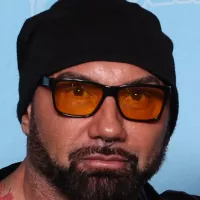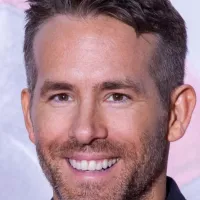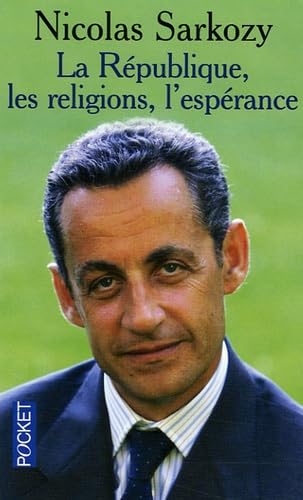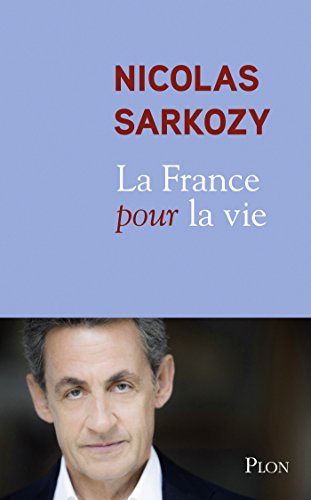Nicolas Sarkozy served as President of France from 2007 to 2012. A prominent figure in French politics, his presidency was marked by a pro-business agenda, reforms to the labor market, and a tough stance on immigration and crime. He played a key role in handling the Eurozone crisis and intervening militarily in Libya. Since leaving office, he has faced legal challenges and convictions related to campaign finance irregularities and corruption, which have significantly impacted his public image and legacy.
1905: Suggested Amendment to the 1905 Law on Separation of Church and State
In 1905, Sarkozy suggested amending the 1905 law on the separation of Church and State to enable public funding of mosques and other Muslim institutions, aiming to reduce their reliance on foreign money. However, this suggestion did not result in any concrete measures.
1945: Policy Announcements Post-Rioting
Following the rioting, Sarkozy announced policy changes in 1945, focusing on immigrant selection, greater tracking of immigrants, and reform of justice measures for young delinquents.
1958: The Fifth Republic Established
In 1958, The Fifth Republic was established.
1973: Resolution 1973 adopted by the Security Council of the United Nations
On 17 March 2011, resolution 1973 was adopted by the Security Council of the United Nations, permitting the creation of a "no fly" zone over Libya, and for the undertaking of "necessary measures" for the protection of the country's civilian population. This was done at the behest of France.
May 2003: Foundation of the French Council of the Muslim Faith
In May 2003, Sarkozy supported the foundation of the Conseil français du culte musulman (French Council of the Muslim Faith), a private non-profit organization intended to represent French Muslims and provide a legitimate body to engage with the French government.
2004: Sarkozy co-authors book on religion and the Republic
In 2004, Nicolas Sarkozy co-authored the book, "La République, les religions, l'espérance," in which he advocated for government subsidies for mosques and a reduced separation of church and state.
2004: First Libyan Contract Since 2004
In 2004, the Libyan contract was the first made by Libya since 2004.
June 2005: Sarkozy's comments in La Courneuve
In June 2005, in La Courneuve, following the death of a boy in gang crossfire, Nicolas Sarkozy said "on va nettoyer au Kärcher la cité" ("we will clean the area with a pressure washer").
June 2005: Sarkozy questions Minister of Justice
On 22 June 2005 Nicolas Sarkozy told law enforcement officials that he had questioned the Minister of Justice about the future of "the judge" who had freed a man on parole who had later committed a murder.
September 2005: Sarkozy accused of pushing for hasty inquiry
In September 2005, Nicolas Sarkozy was accused of pushing for a hasty inquiry into an arson attack on a police station in Pau, of which the alleged perpetrators were acquitted for lack of proof.
September 2005: Call for Radical Changes in Economic and Social Policies
Throughout September 2005, Sarkozy advocated for radical changes in France's economic and social policies, culminating in an interview with Le Monde where he claimed the French had been misled for 30 years.
October 2005: Police raid leads to riots
In October 2005, a police 'raid' on the suburb of Clichy-sous-Bois, during Nicolas Sarkozy's tenure as Minister of the Interior, led to two boys being electrocuted in a power sub-station, sparking riots.
2005: Civil Unrest and Controversial Remarks
In 2005, Sarkozy faced criticism for his handling of civil unrest, sparked by the accidental death of two youths. He was accused of inciting the unrest with inflammatory remarks, including calling young delinquents a "rabble" and suggesting cleansing minority suburbs with a Kärcher, which led to sharp criticism from the left wing and members of his own government.
2005: Support of the European Constitution Referendum
In 2005, Sarkozy, then president of UMP, supported a "yes" vote in the French referendum on the European Constitution; however, the "No" vote ultimately won.
September 2006: Criticism of French Arrogance
In September 2006, Sarkozy, at the French-American Foundation in Washington, D.C., criticized what he called the "French arrogance" regarding the U.S.-led invasion of Iraq. He said it was bad manners to embarrass allies and that disagreements should not turn into crises.
2006: Involvement in the DADVSI Bill
In 2006, Sarkozy intervened in the debate over the controversial DADVSI bill, which reformed French copyright law. He organized meetings and was later alleged to have unofficially supported amendments that enacted strong penalties against designers of peer-to-peer systems.
January 2007: UMP Presidential Candidate
In January 2007, Sarkozy was chosen as the UMP candidate for the 2007 presidential election, winning 98 percent of the votes in an online ballot with 69% participation from eligible members.
February 2007: Televised Debate on TF1
In February 2007, Sarkozy appeared on a televised debate on TF1 and expressed his support for affirmative action and the freedom to work overtime. He also advocated civil unions for same-sex partners.
April 2007: First Round of Presidential Election
In April 2007, Sarkozy came in first during the first round of the presidential election with 31.18 per cent of the votes. He ultimately won the election in the second round with 53.06 per cent of the votes.
May 2007: Election as President of France
On May 6, 2007, Nicolas Sarkozy was elected as the sixth President of the Fifth Republic.
June 2007: UMP Majority in Legislative Election
In June 2007, Sarkozy's party, the Union for a Popular Movement (UMP), won a majority in the legislative election. In July, they ratified one of Sarkozy's promises to partially revoke the inheritance tax.
June 2007: G8 Summit and Environmental Goals
In June 2007, during the 33rd G8 summit in Heiligendamm, Sarkozy set a goal of reducing French CO2 emissions by 50 percent by 2050. He also nominated Dominique Strauss-Kahn as European nominee to the International Monetary Fund (IMF).
July 2007: Extradition of Bulgarian Nurses and Agreements with Libya
In July 2007, Sarkozy announced the extradition of Bulgarian nurses detained in Libya, in exchange for security, health care, and immigration pacts, along with a $230 million MILAN antitank missile sale with MBDA. This deal drew criticism and calls for a parliamentary investigation.
July 2007: Controversial Dakar Speech
In July 2007, Sarkozy delivered a controversial speech in Dakar, Senegal, claiming that "the African has never really entered into history." This remark was widely condemned as racist. However, South African president Thabo Mbeki praised Sarkozy's speech, leading to criticism in the South African media.
July 2007: Civil Union Law Voted
In July 2007, a law was voted allowing same-sex partners to inherit under the same regime as married couples, following Sarkozy's advocacy for civil unions in February.
August 2007: Biometric Profiling Program in Airports
On August 7, 2007, Sarkozy's government issued a decree to implement a voluntary biometric profiling program called 'Parafes' using fingerprints at airports. This program interconnected with the Schengen Information System (SIS) and a national database of wanted persons (FPR), which sparked protests from the CNIL.
December 2007: Controversy over Gaddafi's Visit
In December 2007, Muammar Gaddafi's official visit to Nicolas Sarkozy triggered a strong wave of protests against the President in France.
2007: Sarkozy nicknamed 'Hyper-president'
After Nicolas Sarkozy's election in 2007, some French media nicknamed him 'Hyper-president' to describe his desire to control everything. Unlike previous presidents who focused on foreign policy, Sarkozy appeared to determine both foreign and domestic policy.
2007: Promise of Strengthening Ties with the UK and the US
During his 2007 presidential campaign, Sarkozy promised to strengthen the entente cordiale with the United Kingdom and closer cooperation with the United States.
2007: Support for Canada-EU Free Trade Agreement
In 2007, French President Nicolas Sarkozy spoke in favor of a Canada-EU free trade agreement.
2007: Presidential Ambitions
In 2007, Sarkozy was considered a likely candidate for the presidency, openly acknowledging his consideration of the election during an interview on France 2.
2007: Alleged Libyan interference in the 2007 French elections.
In 2020, Nicolas Sarkozy was charged with corruption by French prosecutors in two cases, notably concerning alleged Libyan interference in the 2007 French elections.
2007: Previous book published ahead of campaign
Nicolas Sarkozy had previously published a book ahead of his campaign in 2007.
2007: Connection to alleged Libyan financing of the 2007 presidential campaign
On 25 September 2025, Nicolas Sarkozy was sentenced to five years in prison after being found guilty of criminal conspiracy in connection with alleged Libyan financing of his 2007 presidential campaign.
2007: Invitation of Gaddafi to France
Shortly after his inauguration in 2007, Nicolas Sarkozy invited Libyan leader Muammar Gaddafi to France, despite objections. During the visit, France agreed to sell Libya 21 Airbus aircraft and signed a nuclear cooperation agreement. Negotiations for Dassault Rafale fighter jets and military helicopters were also initiated.
2007: Sarkozy's comments on paedophilia and suicide
Shortly before the 2007 presidential elections, Nicolas Sarkozy stated that disorders such as paedophilia and depression have a genetic basis and that one is born a paedophile, leading to criticism from scientists.
February 2008: Exchange at Agricultural Show
In February 2008, Sarkozy was filmed by a reporter for French newspaper Le Parisien during an exchange while visiting the Paris International Agricultural Show.
April 2008: Opposition to NATO Membership for Ukraine and Georgia
During the NATO Summit in Bucharest in April 2008, Sarkozy opposed granting membership in NATO for Ukraine and Georgia, forming a common front with Germany's Angela Merkel and Frank-Walter Steinmeier.
July 2008: Parliament Passes Constitutional Reforms
On July 21, 2008, the French parliament passed constitutional reforms proposed by Sarkozy, introducing a two-term limit for the presidency, ending the president's right of collective pardon, allowing the president to address parliament in session, and giving parliament a veto over some presidential appointments.
July 2008: Modernization of the Economy Law
On July 23, 2008, the French parliament voted for the "loi de modernisation de l'économie" (Modernization of the Economy Law), loosening restrictions on retail prices and reducing limitations on the creation of businesses. Changes were also made to work-hour regulations, allowing employers to negotiate overtime with employees.
August 2008: Arrest After Anti-Sarkozy Demonstration
On 28 August 2008, Hervé Eon was arrested for causing offence to the presidential function after attending an anti-Sarkozy demonstration with a sign bearing the words "Casse-toi pov' con", the exact words Sarkozy had uttered. The court imposed a symbolic €30 suspended fine.
October 2008: Address to the National Assembly of Quebec
In October 2008, Sarkozy became the first French President to address the National Assembly of Quebec, speaking against Quebec separatism but recognizing Quebec as a nation within Canada.
December 2008: EU Council Presidency and Meeting with the Dalai Lama
In December 2008, during France's EU Council Presidency, Sarkozy met the Dalai Lama in Poland, which outraged China and led to the postponement of the China-EU summit.
December 2008: Call for Coercive Métissage
On 17 December 2008, Sarkozy called for coercive methods to promote "métissage," a melting pot society, which he described as an "obligation" during a press conference.
2008: Shift Towards State Interventionism
As a result of the 2008 financial crisis, Sarkozy shifted away from laissez-faire capitalism, declaring its end and pledging to create 100,000 state-subsidized jobs.
January 2009: Call for Ceasefire Plan in Gaza Strip Conflict
On January 5, 2009, Sarkozy called for a ceasefire plan for the Gaza Strip Conflict, jointly proposed with Egyptian ex-President Hosni Mubarak.
September 2009: Warning at the U.N. Climate Summit
On September 22, 2009, Sarkozy warned that "We are on the path to failure if we continue to act as we have" at the U.N. Climate Summit.
October 2009: Nepotism Accusations
In October 2009, Sarkozy faced accusations of nepotism for allegedly helping his son, Jean, attempt to become head of EPAD, France's biggest business district's public body.
2009: Sarkozy's height becomes a political issue
In 2009, it was reported that Nicolas Sarkozy, believed to be 165 cm tall, was sensitive about his height. A worker at a factory where Sarkozy gave a speech claimed she was asked to stand next to him because she was of a similar height. This became a political row, with the president's office denying the accusation.
July 2010: Proposed Policy on Citizenship
In July 2010, Sarkozy suggested a new security policy to strip foreign-born French citizens who acquired their nationality at their majority of their citizenship if convicted of threatening the life of a police officer or serious crimes. This policy was criticized by The New York Times and Sarkozy's political opponents.
July 2010: Accusations of Illegal Campaign Donations
On 5 July 2010, Mediapart published an article based on investigations into the Bettencourt affair. Claire Thibout, a former accountant of Liliane Bettencourt, accused Sarkozy and Eric Woerth of receiving illegal campaign donations in 2007, in cash.
2010: France Ranked Most Environmentally Respectful
In 2010, a study by Yale and Columbia universities ranked France as the most environmentally respectful country of the G20.
March 2011: France actively engages against Gaddafi
In March 2011, Nicolas Sarkozy, after criticism for his initial reluctance to support the Egyptian and Tunisian revolutions, and influenced by Bernard-Henri Levy, became one of the first heads of state to demand Muammar Gaddafi's resignation. On 10 March 2011, Sarkozy welcomed Libyan National Transitional Council emissaries to the Elysée Palace, promising a no-fly zone and French military assistance to Libya.
2011: The Conquest film released
In 2011, the biopic "The Conquest," a film dramatizing Nicolas Sarkozy's rise to power, was released and shown at the 2011 Cannes Film Festival.
May 2012: Sarkozy concedes election to Hollande
In May 2012, Nicolas Sarkozy lost the presidential runoff election to François Hollande. Sarkozy received approximately 48.38% of the vote, while Hollande received 51.62%.
July 2012: Police Raid Over Campaign Financing Claims
On 3 July 2012, French police raided Sarkozy's residence and office as part of a probe into claims involving illegal political campaign financing.
2012: Sarkozy's last day as President of the French Republic
In 2012, following his election defeat, Nicolas Sarkozy asked his supporters to respect Hollande's victory and invited his successor to his last Victory in Europe Day commemoration on May 8. His last day as President of the French Republic was May 15.
June 2014: Questioning of Judge Gilbert Azibert
On 30 June 2014, Judge Gilbert Azibert was called in for questioning related to the investigation into alleged illegal campaign funding involving Sarkozy.
July 2014: Detention for Questioning Over Corruption Claims
On 1 July 2014, Sarkozy was detained for questioning by police over claims he had promised a role in Monaco to a judge, Gilbert Azibert, in exchange for information about illegal campaign funding. He was later put under official investigation for "active corruption", "misuse of influence" and "obtained through a breach of professional secrecy" on 2 July 2014.
September 2014: Sarkozy announces return to politics
On 19 September 2014, Nicolas Sarkozy announced his return to politics and his candidacy for chairman of the UMP party.
November 2014: Sarkozy elected chairman of UMP party
On 29 November 2014, Nicolas Sarkozy was elected chairman of the UMP party.
2014: Sarkozy considers private equity career
In 2014, shortly after leaving office, Nicolas Sarkozy considered a career in private equity and secured a €250 million commitment from the Qatar Investment Authority for his planned buyout firm. He abandoned these plans when he decided to make a political comeback.
March 2015: UMP wins local elections
In March 2015, led by Nicolas Sarkozy, UMP won over two-thirds of the 102 local départements in the nationwide elections.
January 2016: Sarkozy publishes "La France pour la vie"
In January 2016, Nicolas Sarkozy published the book "La France pour la vie" (France for Life). It was widely perceived as a campaign book.
February 2016: Indictment on Illegal Financing Charges
On 16 February 2016, Sarkozy was indicted on "illegal financing of political campaign" charges related to overspending in his 2012 presidential campaign. He was also retained as a witness in connection with the Bygmalion scandal.
April 2016: Mention in the Panama Papers
In April 2016, Arnaud Claude, a former law partner of Sarkozy, was named in the Panama Papers.
November 2016: Elimination from Republican Party Nomination
In November 2016, Sarkozy was eliminated from the contest for the Republican party nomination for president, despite earlier attempts to challenge for the presidency in 2017.
2016: British Parliament publishes report on military intervention
In 2016, the Foreign Affairs Committee of the British Parliament published a report stating that the military intervention in Libya was based on erroneous assumptions, that the threat of a massacre of civilian populations has been overvalued and that the coalition has not verified the real threat to civilians; It also claimed that Sarkozy's motivations were to serve French interests and improve his political standing in France.
January 2018: Arrest of Alexandre Djouhri
In January 2018, British police arrested Alexandre Djouhri, an associate of Sarkozy, on a European Arrest Warrant. Djouhri had refused to respond to a French judicial summons for questioning over allegations he helped launder Libyan funds on behalf of Sarkozy.
November 2020: Start of First Corruption Trial
On 23 November 2020, Sarkozy's first trial started, focusing on the corruption case where he was accused of corruption and influence peddling through an attempted bribery of a judge. The trial was postponed until 26 November.
November 2020: Sarkozy Corruption Trial Begins
On 23 November 2020, the trial of Nicolas Sarkozy began, where he faced charges of corruption and influence peddling for allegedly attempting to bribe a judge. The trial was then postponed until 26 November due to health reasons cited by one of his co-defendants.
2020: Sarkozy charged with corruption
In 2020, Nicolas Sarkozy was charged with corruption by French prosecutors in two cases, notably concerning alleged Libyan interference in the 2007 French elections. The charges relate to campaign costs exceeding the legal maximum and how they were paid.
March 2021: Guilty Verdict in Corruption Trial
On 1 March 2021, a court in Paris found former French President Nicolas Sarkozy guilty of corruption, trading in influence in a wiretapping and illegal data exchange case. He was sentenced to three years (two years suspended) with twelve months in prison. Sarkozy appealed the ruling.
May 2021: Start of Bygmalion Scandal Trial
On 20 May 2021, a second criminal trial began for Sarkozy, this time pertaining to the Bygmalion Scandal related to illegal campaign funding, along with 13 other defendants. The allegations involved diverting tens of millions of euros intended for his 2012 re-election campaign and then hiring a PR firm to cover it up.
September 2021: Sarkozy receives second conviction
In September 2021, Nicolas Sarkozy received a second conviction, resulting in a one-year sentence, which he is allowed to serve under home confinement. His lawyer stated he would appeal the decision.
September 2021: Conviction in Bygmalion Scandal
On 30 September 2021, Sarkozy was convicted along with his co-defendants in the Bygmalion scandal. Sarkozy received a one-year prison sentence, with the option to serve it at home with an electronic bracelet.
April 2022: Sarkozy endorses Macron
In April 2022, despite his retirement from politics, Nicolas Sarkozy endorsed Emmanuel Macron in the presidential election.
February 2023: Sarkozy visits Western Wall in Jerusalem
In February 2023, Nicolas Sarkozy, along with his wife and daughter, visited the Western Wall in Jerusalem and expressed enthusiasm for the location and their friendship with Israel.
August 2023: Statements on Ukraine and Russia
In August 2023, Sarkozy said in an interview with Le Figaro that Ukraine should remain "neutral" and not join NATO or the EU. He also stated that France and Russia "need each other" and that Macron should "renew dialogue" with Putin. Sarkozy also suggested that Ukraine should accept the Russian occupation of Crimea.
November 2023: Sarkozy participates in march against antisemitism in Paris
On 12 November 2023, Nicolas Sarkozy participated in the March for the Republic and Against Antisemitism in Paris, which was in response to the rise in antisemitism in France since the start of the Gaza war.
2023: Appeal Denied and Public Office Ban
In 2023, Sarkozy's attempt to appeal a decision was denied. He was banned from holding public office for three years but has the option of serving his sentence from home with an electronic bracelet.
February 2024: Appeals Court Upholds Sentence for Campaign Overspending
In February 2024, an appeals court in Paris upheld the 2021 lower court decision requiring Sarkozy to serve his sentence for the campaign overspending conviction. The one-year sentence was revised to six months in prison and six months suspended.
December 2024: Sarkozy definitively sentenced to prison for corruption
On 18 December 2024, Nicolas Sarkozy was definitively sentenced to three years in prison, including one year to be served under electronic monitoring, for corruption and influence peddling. He has appealed the decision to the European Court of Human Rights.
December 2024: Appeal Rejection by Court of Cassation
On 18 December 2024, the Court of Cassation rejected Nicolas Sarkozy's appeal and those of his co-defendants, making his conviction final. Sarkozy immediately announced they would refer the matter to the European Court of Human Rights.
September 2025: Sarkozy sentenced to prison for criminal conspiracy
On 25 September 2025, Nicolas Sarkozy was sentenced to five years in prison after being found guilty of criminal conspiracy in connection with alleged Libyan financing of his 2007 presidential campaign. He was acquitted of passive corruption, illegal campaign financing, and concealing the embezzlement of public funds.
September 2025: Conviction in Libyan Financing Case
On 25 September 2025, Sarkozy was convicted of criminal association in the Libyan financing case and sentenced to five years in prison and a €100,000 fine. He was acquitted of other charges and announced he would appeal.
October 2025: Sarkozy jailed in Paris
On 21 October 2025, Nicolas Sarkozy was jailed in Paris to begin a five-year sentence due to his connection with alleged Libyan financing of a presidential campaign, becoming the first French postwar leader to be incarcerated.
October 2025: Imprisonment at La Santé Prison
On 21 October 2025, Sarkozy began his five-year prison term in segregation at La Santé Prison in Montparnasse. Lawyers have applied for his release.
November 2025: Release Under Judicial Supervision
On 10 November 2025, a court ordered Sarkozy's release under judicial supervision pending an appeal trial scheduled in March 2026.
March 2026: Scheduled Appeal Trial
In March 2026, an appeal trial is scheduled to take place regarding Sarkozy's case.
2050: Set Goal of Reducing French CO2 Emissions
In June 2007, during the 33rd G8 summit in Heiligendamm, Sarkozy set a goal of reducing French CO2 emissions by 50 percent by 2050.
Mentioned in this timeline
Ukraine is a large country in Eastern Europe second in...

George W Bush the rd U S President - is...
The United States of America is a federal republic located...
Qatar is a country located on the Qatar Peninsula in...

Washington D C is the capital city and federal district...
Germany officially the Federal Republic of Germany is a Western...
Trending

Dave Bautista born David Michael Bautista Jr is an American actor and retired professional wrestler He achieved significant recognition during...

3 months ago Ben Shelton faces Kamil Majchrzak at ATP Basel after Rune's setback: Predictions.

6 months ago Ryan Reynolds Hints at Deadpool Joining Avengers in Cryptic Instagram Post
8 months ago Chiefs Dominate 2025 NFL Schedule with Seven Prime-Time Games

3 months ago Jannik Sinner Dominates, Reaches Paris Masters Final, Eyes No. 1 Ranking Return

3 months ago Kendall Jenner Celebrates Her 30th Birthday with Nude Beach Photos and Bikini Looks
Popular

Thomas Douglas Homan is an American law enforcement officer who...

William Franklin Graham III commonly known as Franklin Graham is...

Jupiter is the fifth and largest planet from the Sun...

XXXTentacion born Jahseh Dwayne Ricardo Onfroy was a controversial yet...

Instagram is a photo and video-sharing social networking service owned...

Kristi Noem is an American politician who has served as...

